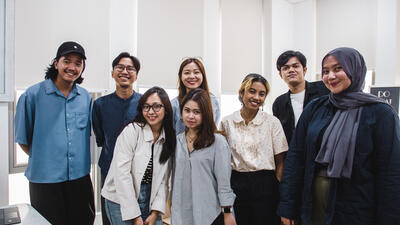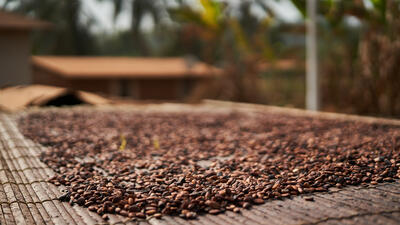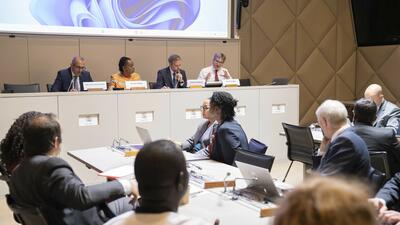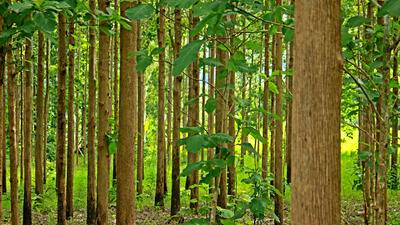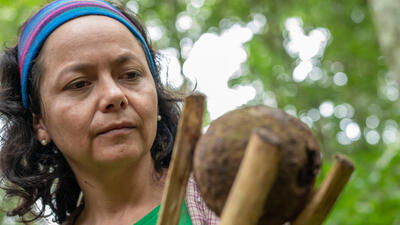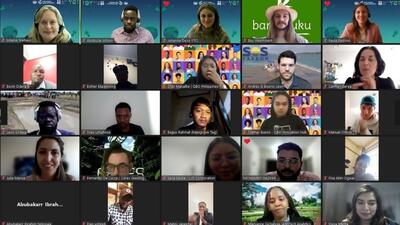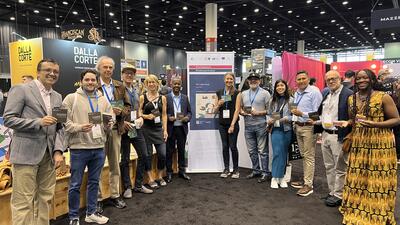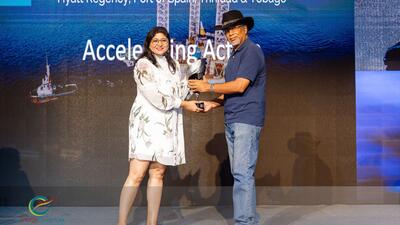
How to farm without harming forests
Many businesses, especially in agriculture, encroach on forests as they grow their operations. The world has to find ways to change that pattern to slow down deforestation.
Seven commodities – cattle, oil palm, soy, cocoa, rubber, coffee and wood – accounted for a quarter of the total global loss between 2011 and 2015, according to the World Resources Institute.
This figure is still seen today as a solid representation of the overall damage to forests caused by unregulated farming.
But there are ways to support deforestation-free value chains that get food to consumers without harming forests.
The International Trade Centre (ITC) and the European Commission hosted a round table on 12 June at the WTO. The discussion highlighted ongoing efforts to mitigate deforestation linked to value chain activity.
Here are four key takeaways that emerged from the discussion:
Important consensus
‘We must ensure the long-term protection of those livelihoods and enable economic growth, all while reducing forest loss drastically,’ said ITC Deputy Executive Director Dorothy Tembo.
‘EUDR is a key achievement and didn’t come as a free lunch. Over 200 NGOs and over one million citizens in Europe were involved in it. Campaigning made this a regulation,’ said Romain Deveze from the World Wide Fund for Nature (WWF) highlighting the importance civil society plays in the context of regulation.
In the private sector, small businesses can fight deforestation by adopting sustainable production models. Crucially, they need to be part of the discussions as plans and strategies are created, especially as countries find themselves at different starting points on their sustainability journeys.
Holistic interventions
Bless Agume works with Ndugu Farmers in Uganda, a social enterprise that encourages sustainable farming. He says that ‘farmers would support efforts to limit deforestation if interventions can in some way help solve some of their needs.’
Currently, commodity prices do not cover production costs. That means broader economic reforms are needed, said Alex Assanvo, the Executive Secretary of the Initiative Cacao Côte d’Ivoire-Ghana (ICCIG). ‘History shows that commodity markets are prone to price falls as sudden as price rises – and sadly for farmers, falls are way longer than rises which is creating poverty,’ he said.
Belinda Borck, Global Public Policy Coordinator at Tony’s Chocolonely, also highlighted how sustainable business models in cocoa require collaboration with farmers so that they can earn living incomes and enjoy some ability to plan.
Regulation and opportunity
When the EUDR takes effect from 30 December 2024, anyone trading in or with the bloc must prove their goods were produced in accordance with local legislation and without causing deforestation. That will lead to data requests, which farmers will often need to provide to companies they do business with.
‘This is where deforestation-free regulations and standards play a critical role by strengthening the business case for a deforestation-free, living income compatible and verifiable cocoa. Our concern is that the cost of compliance is passed upstream to the farmer. There is no reference to price – living income prices, sustainable prices, whatever – in existing EU regulations,’ said Assanvo.
ITC works on several projects to support developing countries in meeting the new requirements.
Data and traceability
Traceability and reliable data ensure that products meet sustainability standards from production to consumption.
‘A lot can be achieved with data currently available that helps to understand where the action is most needed,’ said Andre Vasconcelos of TRASE, a project led by the Stockholm Environment Institute and Global Canopy. TRASE maps supply chains and quantifies exposure to deforestation. In Argentina, the traceability platform VISEC maps beef production, offering a model for other goods.
For collaborations to work, you need the right incentives.
Agume envisions a future where coffee drinkers in Europe tip their waiter but also the farmer in Uganda. For that to happen, we need data.
The roundtable also highlighted the ongoing Farmer Census in Ghana seeking to build a system of national traceability in both countries.
Effectively decoupling deforestation and ecosystem conversion from commodity production at a global scale requires leveraging commitments and policy interventions through joined-up supply and demand-side regulations as well as action by businesses and the financial sector.
This Roundtable builds on the Climate Competitiveness Project, an initiative led by ITC and funded by the European Commission (DG Trade).






